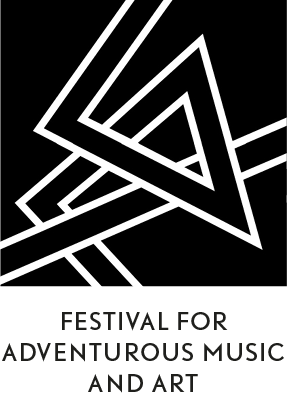Festival Editions
Research Networking Day: Media Art Technologies and Emotion
Kunstquartier Studio 1, Mariannenplatz 2, 10997 Berlin → MapTickets: Free entrance
29
SunThe Research Networking Day provides a platform to exchange ideas and experiences for students and researchers from different European graduate and postgraduate programmes traversing the fields of audio, arts, media, design and related theoretical disciplines. A yearly initiative co-organised with Humboldt University’s Department of Musicology, the RND sought submissions from students, junior researchers and persons pursuing higher levels of research and studies to present projects and findings connected to the CTM 2017 Fear Anger Love Theme.
Research Networking Day Welcome and Opening
Hosted by Dahlia Borsche (Humboldt University, DE)
Module I Introduction
The first module within the 2017 Research Networking Day is hosted by Dr. Steffen Lepa, a media and communication scholar and postdoc researcher at the Audio Communication Group, Technische Universität Berlin. His research projects center on digital media change and how it affects human perception, learning and culture, with a special focus on socio-technological developments in the field of audio media and music.
How to Engineer a Krautrock Listener
Malte Kobel (Humboldt University, DE)
But machines don't distance you from your emotions, in fact quite the opposite. Sound machines make you feel more intensely […]. Sonically speaking, the posthuman era is not one of disembodiment but the exact reverse: it's a hyperembodiment. – Kodwo Eshun
To consider the sensing (human) body in music means to simultaneously analyse musical cultures, bodies, affect and technologies: I will exemplify such an assemblage through Krautrock culture. It is in West Germany, in the year 1974, where we can find records (Code III, Sand) that were produced with the then new recording technology of the dummy head: a technology that promised a better stereo sound and was first developed to scientifically research the physiology of human hearing. Even though the technology was not widely successful in popular culture, these Krautrock examples tell vividly of the sounding out of the human body through sound technology. By listening to these records (with headphones) we can follow a recording practice that activates the intensification of a hyper-real listening situation, and deduce, through the work of scholars such as Rolf Großmann, that a listening subject is sensorially engineered within the sonic media culture of Krautrock and the dummy head.
Malte Kobel studied musicology at the University of Vienna and the Humboldt-University Berlin. He has mostly worked in the fields of Sound / Media Studies as well as Pop Music Studies. Apart from academic work, he is running the contemporary music platform BLATT 3000 and hosts a monthly radio show vibration totale on Berlin Community Radio.
Considerations in Using Emotion as an Interaction Channel in Performative Artworks
Dr. Niall Coghlan (Dundalk Insitute of Technology, IE)
While many artists and musicians seek to communicate emotional ideas or evoke an emotional response in their audience, direct emotional interaction via creative technologies remains elusive. As barriers to this goal are reduced through advances in understanding and technology, questions remain about how best to implement emotion as an interaction channel between artist, technology and the audience. Presented here are some considerations for those seeking to explore this area, such as acquisition and management of physiological indicators of emotion, biofeedback loops, sensor driven narratives and interactions with interactive media, including musical performance systems. Examples illustrating the challenges and potential solutions to some of these issues are shown from the researcher’s own and collaborative creative practice, incorporating musical and sonic performance as well as installaion works.
Niall Coghlan’s music industry career began as a live sound engineer, taking detours through corporate AV, audio for e-learning, sound design for the games industry, music journalism and kick-starting music technology projects for young people. Several years of teaching Sound Engineering, Music Technology & DJ skills led him to the Sonic Arts Research Centre (SARC) in Queen’s University Belfast, where he became a Master of Sonic Arts and completed his PhD, exploring human physiology and emotional state as a means of human-computer interaction. He regularly presents his research at conferences and carries out interactive installations and workshops. In addition, Niall DJs and produces electronic music as 2BiT with releases on a variety of labels and regular live shows. Niall is currently Programme Director of the BA (Hons) in Production of Music & Audio at Dundalk Insitute of Technology, Ireland.
Dahlia Borsche[DE]
Dahlia Borsche is musicologist and curator. In 2019 she took on the position of Head of Music at the DAAD Artist-In-Berlin programme.

